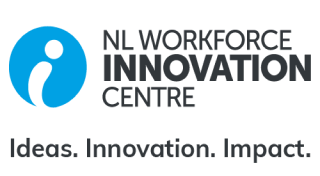By The Numbers
4
massive data sources
13 billion+
data points leveraged
30,000+
careers to explore
Infinite
custom applications of this data
OpportuNext Champions
The OpportuNext Champions Program recognizes organizations that support and use OpportuNext, our innovative online career mapping tool. These Champions demonstrate their commitment to empowering users with practical career insights by endorsing OpportuNext.
We proudly showcase the logos of these organizations, reflecting their support and shared vision of enhancing career pathways through advanced technology.







Where We Get Our Data
Data for occupation attributes like skills, abilities, knowledge, work activities, tools, training and education is sourced from O*NET and Vicinity Jobs databases. Salary information is sourced from Statistics Canada's Canadian Labour Force Survey (LFS). Employment growth prospects are based on data from the The Model of Occupations, Skills and Technology (MOST), and from an occupational forecast produced by Employment and Social Development Canada.
O*NET
We use O*NET data to measure skills and abilities. The O*NET database contains a rich set of variables that describe work and worker characteristics for nearly 1,000 occupations, including:
- Skills
- Knowledge
- Abilities
- Work activities
- Education, training, and experience
Vicinity Jobs
Vicinity Jobs is a rich source of Canadian-specific data. We use Vicinity Jobs along with O*NET data to calculate similarity scores that measure how comparable jobs are to one another. Like O*NET, Vicinity Jobs data describe characteristics for occupations including:
- General (soft) and specialized (hard) skills
- Tools, equipment, and technology skills
- Experience and education requirement
Canadian Labour Force Survey (LFS)
Updated monthly by Statistics Canada, the Labour Force Survey provides estimates of employment and unemployment in Canada, drilling down by industry, occupation, public and private sector, hours worked and much more. It also provides data on wage rates, which we use to show average salaries.
The MOST
The Model of Occupations, Skills and Technology (MOST) generates detailed occupational and industry-level projections for every region in Canada and connects the findings with specific skills. We use The MOST to show growth prospects for each career. It includes:
- Forecasts for 500 occupational groups
- Employment estimates for nearly 700 different industries
- Skill requirements for occupations described using 35 skills categories
Custom Applications
OpportuNext is built on these powerful databases, but the data can be leveraged in many ways. If you have a specific challenge to address, we can leverage this data to create a tailored solution that meets your exact needs. If you would like more detail on our data sources and how we use them, you can contact us.
Who OpportuNext Is For
Featured Research and Resources
Get advice to help push your career forward. Access articles, interviews and reports with general and industry-specific tips for career hunting in Canada.

Contact Signal49 Research for Custom Research
Need specific information or insights make a tough decision or form a strategy? Our experts provide unbiased, highly focused research and evidence-based analysis to take on your most pressing challenges.
Contact us








